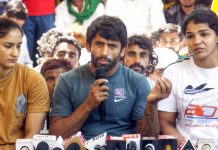The apex court will first have to contend with the response from the Centre and now the Bar Council of India, which has said it is opposed to same-sex marriage.
A resolution passed by the Bar Council of India has urged the Supreme Court to avoid a decision on petitions seeking legal recognition for same-sex marriage, stating that it is the responsibility of the legislature to deal with such matters. The resolution claims that more than 99.9% of people of the country are opposed to “the idea of same sex marriage.”
However, the contrary view is that by legalising same-sex marriage, India can join the 30-odd countries which allow it, and lead from the front in Asia where only Taiwan has legalised it. Indeed the LGBTQIA+ community will look for a definitive directive on this from the Supreme Court.
Earlier the Centre had maintained during hearing that the petitions before the court reflect urban elitist views for the purpose of social acceptance. “A decision by the court in recognising the right of same sex marriage would mean a virtual judicial rewriting of an entire branch of law. The court must refrain from passing such omnibus orders. Proper authority for the same is the appropriate legislature. Given the fundamental social origin of these laws, any change in order to be legitimate would have to come from the bottom up and through legislation a change cannot be compelled by judicial fiat and the best judge of the pace of change is the legislature itself,” stated the application by the Centre.
“This is the only constitutional approach permissible under the Constitution while recognising any socio-legal relationship as an institution with sanction under the law. The competent legislature is the only constitutional organ which is aware of the above referred considerations. The petitioners do not represent the view of the entire population of the nation,” it added.
“Any encroachment on the legislative powers solely reserved for the elected representatives would be against the well-settled principles of ‘separation of powers’ which is held to be a part of the basic structure of the Constitution. Any such deviation from the concept of separation of powers would be thus, contrary to constitutional morality,” the application reads. It further states that, “The institution of marriage is necessarily a social concept and a sanctity to the said institution is attached under the respective governing laws and customs as it is given sanctity by law on the basis of social acceptance. It is submitted that social acceptance and adherence to societal ethos, common values, shared beliefs across religions, in case of recognition of “socio-legal institution of marriage” is not to be confused with majoritarianism.”
On the heels of Centre’s plea came a resolution by the Bar Council of India which notes that India is a socio-religiously diverse country, and any decision regarding such a sensitive matter may prove harmful to future generations. The responsibility of law making has been entrusted to the legislature under the Constitution, and laws made by the legislature are democratic as they are made after a consultative process.
The resolution states that the issue of legal recognition of same-sex marriage is a matter of serious concern for the bar, and any decision of the apex court in such a sensitive matter may destabilize the social structure of the country in the coming days. The resolution urges the court to leave the question of recognizing same-sex marriage to the legislature, as it may arrive at an appropriate decision as per the societal conscience and mandate of the people of the country.
According to the resolution, marriage has been typically accepted and categorized as a union of biological man and woman for the twin purpose of procreation and recreation since the inception of human civilization and culture. Thus, it would be catastrophic to overhaul something as fundamental as the conception of marriage by any law court, however well-intentioned it may be.
A constitution bench of the Supreme Court began hearing a batch of pleas seeking recognition of same-sex marriage on April 18. The hearing began on a controversial note as the government urged the court to either put the case on hold till it consults with all the states on the issue or hear their concerns in open court. However, the hearing scheduled to continue on April 24 has been put on hold as two of the judges are indisposed. The resolution of the Bar Council of India raises important issues regarding the role of the judiciary and the legislature in shaping public policy and upholding constitutional values.
The issue before the SC is a legal one. The petitioners’ case is that when statutory laws do not recognise same-sex marriages, they violate fundamental rights. The touchstone here is the Constitution whose underlying principles are inconsistent with majoritarianism. The Supreme Court’s decision in this matter will have far-reaching implications for the rights of the LGBTQ+ community and the overall socio-cultural fabric of the country. It is essential that the court takes into account the diverse opinions and beliefs of all sections of the society while arriving at a decision that upholds the principles of equality and justice enshrined in the Constitution.
The Supreme Court has been seized of 15 petitions demanding legal recognition for same-sex marriages. The top court had transferred to itself petitions pending in several High Courts and a Bench of Chief Justice D.Y. Chandrachud and Justices P.S. Narasimha and J.B. Pardiwala asked the Centre to file its reply to all the petitions. Petitioners are looking for an authoritative ruling legalising same-sex marriage, especially on the question of whether it will be brought within the ambit of the Special Marriage Act of 1954, which allows a civil marriage for couples who cannot marry under their personal law.
Petitioners have argued that denying the community the same rights as heterosexual couples violates a clutch of fundamental rights on life and liberty including Articles 14, 19 and 21 of the Constitution and Article 16 of the Universal Declaration of Human Rights, to which India is a signatory. Article 16 says, “Men and women of full age, without any limitation due to race, nationality or religion, have the right to marry and to found a family”.
The apex court will first have to contend with the response from the Centre and now the Bar Council of India, which has said it is opposed to same-sex marriage, stating that judicial intervention will cause “complete havoc with the delicate balance of personal laws”.












